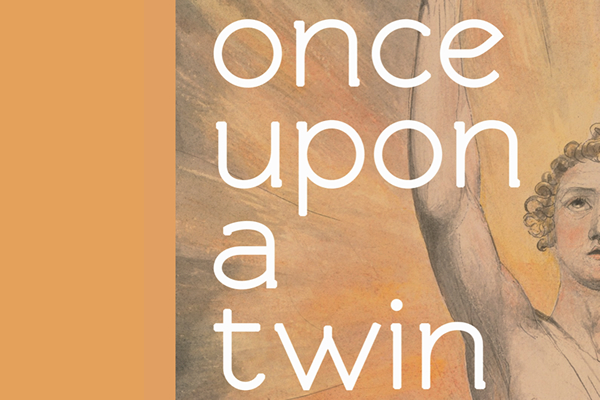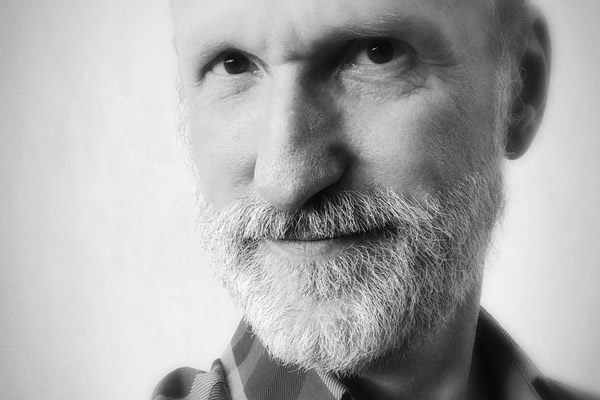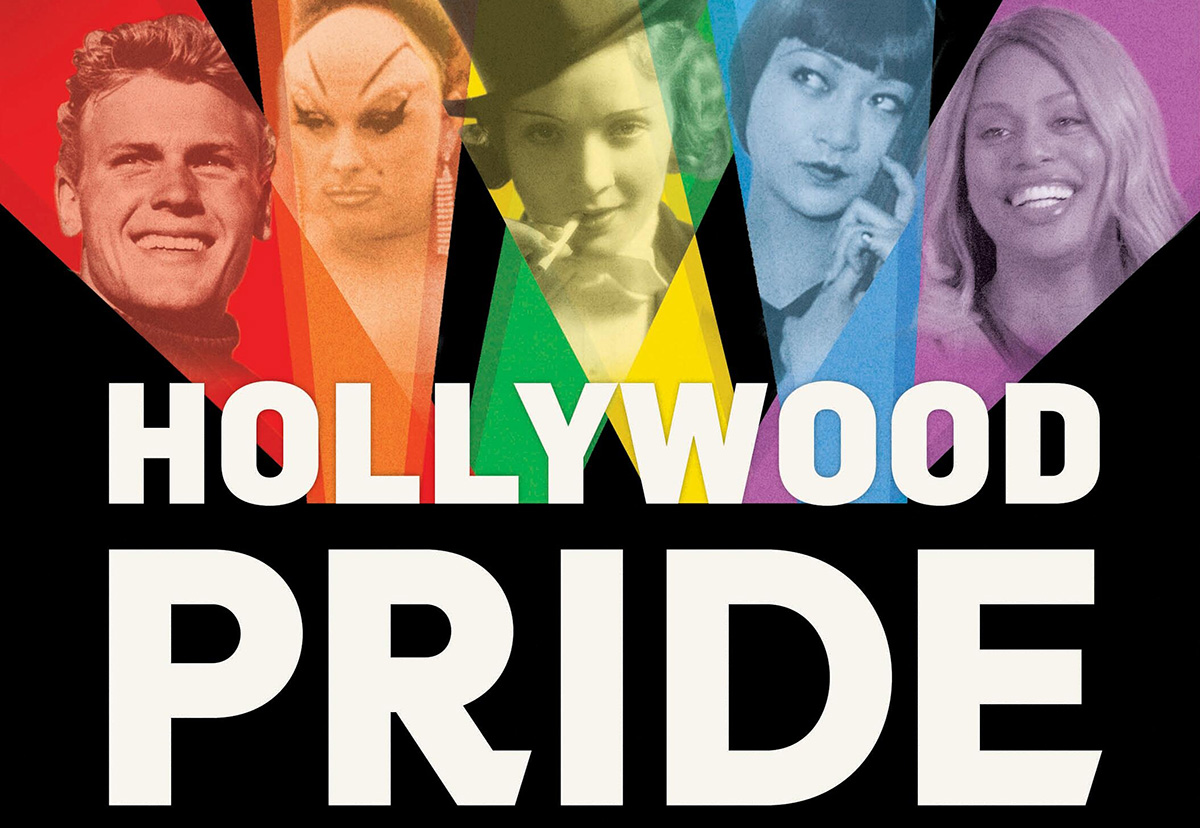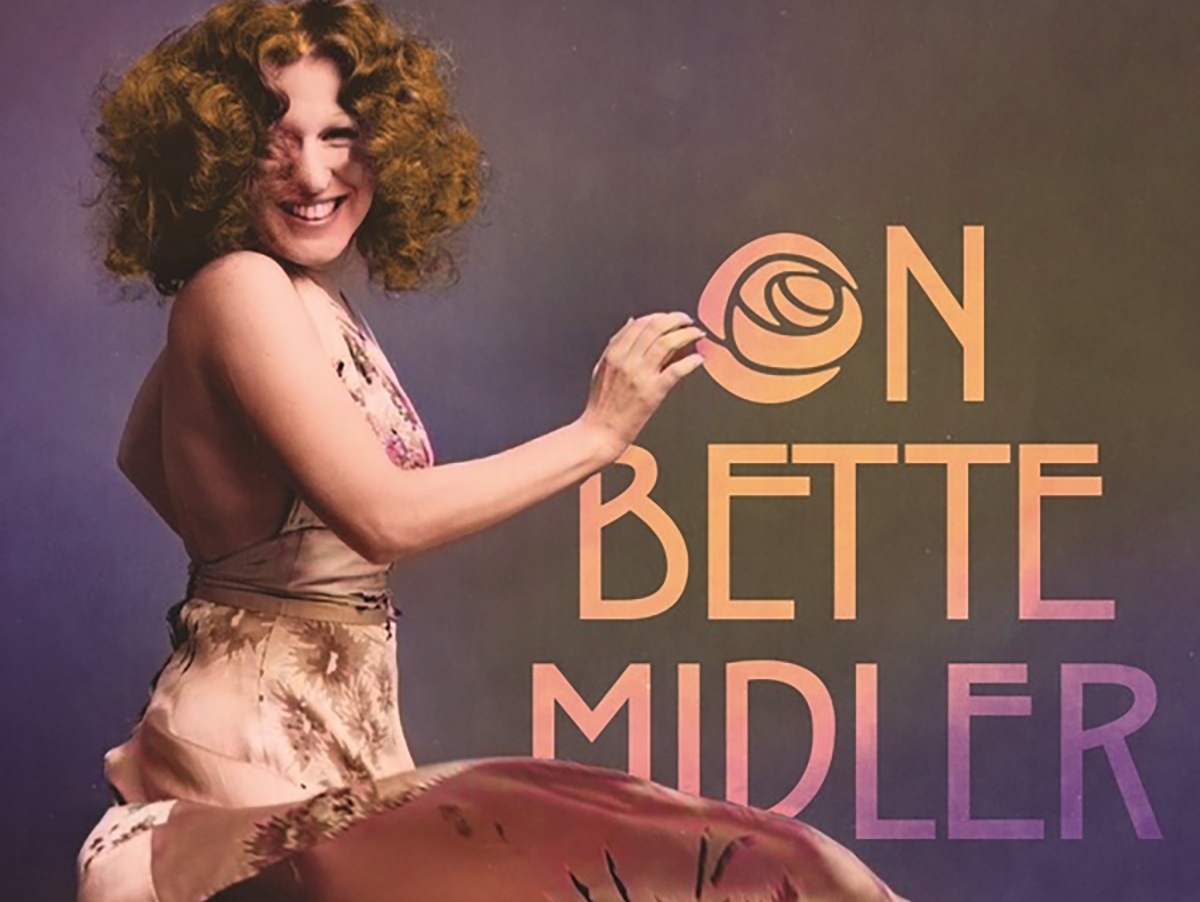Books
Deaf, gay poet explores loss of a twin in new book
‘Once Upon a Twin’ ponders how life would differ if sibling had survived

“Asshole/battybat/big baby/blundering boob/…deaf & dumb/dick/dumbdumb/fag,” Deaf, gay poet and playwright Raymond Luczak writes in his poem “the easiest words to lipread in a schoolyard (even if you’re not deaf).
The poem appears in Luczak’s new book “Once Upon a Twin,” released this year by Gallaudet University Press.
Luczak, 55, who lives in Minneapolis, graduated from Gallaudet University in Washington, D.C. with a bachelor’s degree in English in 1988. He has written and edited more than 20 books, including “QDA: A Queer Disability Anthology,” the award-winning Deaf, gay novel “Men with Their Hands,” “The Kiss of Walt Whitman Still on My Lips” and the drama “Snooty: a Comedy.”
Growing up wasn’t easy for Luczak. He grew up in Ironwood, a small mining town in Michigan’s Upper Peninsula.
At eight months old, he lost his hearing due to double pneumonia and a high fever. This wasn’t detected until he was two-and-and-a-half years old. He was one of nine siblings in a hearing family.
At that time, many Deaf people weren’t permitted to communicate with their language – American Sign Language. Forbidden to sign, he was outfitted with a rechargeable hearing aid. There was no program for deaf children in Ironwood. For nine years, he stayed with foster families during the week in Houghton, a town two hours away. In Houghton he was in a speech therapy program.
Life opened up for Luczak when he enrolled at Gallaudet where he could communicate with American Sign Language.
In interviews conducted by email, Luczak talked with the Blade about a wide range of topics from coming out to what inspired him to write “Once Upon a Twin” to why Whitman would take selfies today.
Growing up as the only Deaf person in a hearing family was frustrating and infuriating for Luczak. “A classic situation: I’m sitting at the big kitchen table with all 11 of us, and everyone is talking at once,” Luczak said, “Where do I focus for lipreading? Why is my sister laughing? What was so funny?”
Luczak wants you to imagine what going through this for every meal would be like. It’s one thing if you endure this with strangers who know nothing about deafness, he said. But, it’s quite another thing if you’re with a family who should know better about your deafness.
“It’s as if they wanted to believe that my lipreading skills are so superior I didn’t need further assistance. Not true,” Luczak said. “I don’t have the ability to geolocate a sound so this explains why I cannot catch who is speaking and turn my attention in order to lipread that person.”
Language is a powerful bond for a community. In Milan, Italy in 1880, there was a conference on the education of the Deaf, Luczak said. There it was decreed that the use of sign language would be banned as a teaching method.
Up until then, “the Deaf community had a real Golden Age in which they came together through the establishment of Deaf residential schools, Deaf clubs and whatnot,” Luczak said.
It was devastating to the Deaf community when Alexander Graham Bell and his ilk made every effort they could to eradicate sign language, Luczak said. Luczak likens the attempt to eradicate sign language to the attempts made throughout history to force LGBTQ people to change their sexual orientation.
Luczak always knew that he was interested in men. Though, it didn’t have a name or specific feeling, and it had nothing to do with sex. He gradually came out, slowly, when he was in his teens.
Luczak came to Gallaudet University in the summer of 1984 and came out publicly a month later.
“What gave me the strength to come out were the first batch of books I’d bought from Lambda Rising [the LGBTQ bookstore that closed in 2010],” Luczak said. “That place was really my second home away from Gallaudet…And the fact that I was allowed to use ASL really gave me the self-confidence I had sorely needed all my life.”
Luczak in poetry, non-fiction, and plays has written in various styles from formal poetry to free verse about many topics from love to Thomas Edison to Walt Whitman to being queer. If Walt Whitman had a love child with a photographer’s eye, it would be Luczak.
In “Once Upon a Twin,” Luczak imagines what his life would have been like if he had a twin. Growing up, he knew that his mother had had three miscarriages, but he never asked her about them. When he was 16 “she mentioned that her third miscarriage happened in the same year I was born,” Luczak said, “and that it happened while she was sitting on the toilet. The fetus had apparently popped out.”
“I couldn’t get that image out of my head,” Luczak added.
Over the years, his mother told Luczak conflicting stories about the miscarriage. About 10 years ago, he looked into whether it was possible for a twin to miscarry and to have the other twin undetected in the womb. “It turns out that the ultrasound technology during the 1960s wasn’t advanced enough so the possibility was quite real,” Luczak said.
Luczak had long wondered how different his life would have been if his twin had survived. In 2018, he wrote a collection of formal verse. After that, he was eager to write in a different style. “Once I realized how I should write my next book (no formal poetry, almost no punctuation, etc.), it hit me that I really should explore the idea of my lost twin,” Luczak said.
“Would I feel as left out at family gatherings if my twin helped include me?” he said, “…Would my twin speak up for me?…I hadn’t dared to examine the possible changes in our family’s dynamics, and how it would’ve affected my self-confidence.”
Luczak was surprised by how easily the book wrote itself. It had been waiting a long time to be written.
Like queer poet Walt Whitman, Luczak’s creativity contains multitudes. In 2016, Luczak’s volume of poetry “The Kiss of Walt Whitman Still on My Lips” was released by Squares & Rebels. Because Whitman wasn’t taught to him when he was in high school or college, Luczak had few preconceptions about Whitman. Other than, he said, that Whitman was a poet with a boyfriend who was a streetcar conductor. But when he read the opening of the “Song of my Self,” Luczak said “Whoa!”
“The poet had conjured a palpable vision of what America could be,” he said, “if Walt were alive today, he’d be sharing selfies and Tweeting away.”
“He loved having his picture taken; he had 127 photographs taken when Abraham Lincoln scored 128 photographs,” Luczak said, “in fact, Whitman was probably America’s first celebrity nude model!”
How does Luczak feel about being a Deaf, gay writer? It’s complicated. On one level, he doesn’t think of himself as a Deaf, gay writer at all. “I do mention this fact but that’s only because I need to stand out a bit more in a country that brings out thousands and thousands of new books each year. It’s a marketing angle,” Luczak said.
He hopes readers will recognize that he’s much more than just a Deaf, gay writer and accept his work as beyond those labels.
Yet, “I still feel proud of being a Deaf gay man,” Luczak said. “It’s enriched my life in ways that I don’t think anyone would’ve anticipated. It’s certainly led me to meet people I wouldn’t have met otherwise. For that I’m grateful.”

Raymond Luczak (Photo courtesy of Luczak)
Books
Ever taken a cross-country drive in the back seat?
Then ‘Here We Go Again’ is the book for you

‘Here We Go Again’
By Alison Cochrun
c.2024, Atria
$17.99/368 pages
Can you do me a solid?
Just one little favor, a quick errand, it won’t take long. You can do it next time you’re out, in fact. Consider it your good deed for the day, if it makes you feel better. A mitzvah. An indulgence to a fellow human. As in the novel, “Here We Go Again” by Alison Cochrun, think of it as a life-changing thing.

She couldn’t remember the woman’s first name.
Did Logan Maletis really ever know it? Everybody at her job – administration, students, other teachers – called everyone else by their last name so the colleague she’d been hooking up with for weeks was just “Schaffer.” Whatever, Logan didn’t care and she wasn’t cold-hearted but when Savannah broke up with her in public, she did wonder if maybe, possibly, the awful names she called Logan were fair or true.
Rosemary Hale would’ve agreed with every last one of those nasty names.
Once, she and Logan were BBFs but after a not-so-little incident happened the summer they were 14, she hated Logan with a white-hot passion. Every time Rosemary ran into Logan at school, she regretted that they worked in the same place. Seeing her old nemesis, even just once in a while, was an irritation she could barely stand.
They had nothing in common at all, except Joseph Delgado.
He’d been their English teacher years ago, and they both followed in his footsteps. He kept them from going stir-crazy in their small Oregon town. He was friend, father figure, and supporter for each of them when they separately came to understand that they were lesbians.
They loved Joe. They’d do anything for him.
Which is why he had one favor to ask.
With a recent diagnosis of incurable cancer, Joe didn’t want to die surrounded by hospital walls. Would Logan and Rosemary drive him and his dog to Maine, to a cabin he owned? Would they spend time crammed side-by-side in a used van, keeping Joe alive, coast-to-coast? Could they do it without screaming the whole way?
Can you avoid laughing at this convoluted, but very funny story? Highly unlikely, because “Here We Go Again” takes every nightmare you’ve ever had of busted friendship, bad vacations, and long-lost love, and it makes them hilarious.
It’s not the story that does it, though. The story’s a bit too long and it can drag, but author Alison Cochrun’s characters are perfectly done, each one of them. Logan is profane in all the right ways and yes, she’s a jerk but an appealing one. Rosemary is too prim, too proper, too straight-laced, but Cochrun lets her be unlaced in a steamy passage that’s not misplaced. You’ll love how this story moves along (although sometimes slowly) and you’ll love how it ends.
If you’ve ever endured a cross-country trip stuffed in the back seat of a hot car for miles and miles, sharing a seat with an abrasive sibling, this is your book. “Here We Go Again” is a solid vacation read.
The Blade may receive commissions from qualifying purchases made via this post.

‘Hollywood Pride: A Celebration of LGBTQ+ Representation and Perseverance in Film
By Alonso Duralde
c.2024, Running Press
$40/322 pages
You plan to buy lots of Jujubes.
They’ll stick to your teeth, but whatever, you’ll be too busy watching to care. You like the director, you know most of the actors as first-rate, and word is that the newcomer couldn’t be more right for the role. Yep, you’ve done your homework. You read Rotten Tomatoes, you’ve looked up IMDB, and you bought your ticket online. Now all you need is “Hollywood Pride” by Alonso Duralde, and your movie night is complete.

William Kennedy Laurie Dickson likely had no idea that what he’d done was monumental.
Sometime in the very late 1800s, he set up a film camera and a wax cylinder to record a short dance between two men, hands around one another’s waists, as Dickson played the violin. It “was one of the very first movies ever shot,” and probably the first film to record men dancing rather intimately alone together.
Back then, and until well into the 20th century, there were laws against most homosexual behavior and cross-dressing, and very rigid standards of activity between men and women. This led to many “intense relationships between people of the same gender.” Still, in World War I-era theaters and though LGBTQ representation “was somewhat slower to get rolling” then, audiences saw films that might include drag (often for comedy’s sake), camp, covert affection, and “bad girls of the era.”
Thankfully, things changed because of people like Marlene Dietrich, Ramon Novarro, Claudette Colbert, George Cukor, Alfred Hitchcock, and others through the years, people who ignored social mores and the Hays Code to give audiences what they wanted. Moviegoers could find LGBTQ actors and themes in most genres by the 1940s; despite politics and a “pink scare” in the 1950s, gay actors and drag (still for comedy’s sake) still appeared on-screen; and by the 1960s, the Hays Code had been dismantled. And the Me Decade of the 1970s, says Duralde, “ended with the promise that something new and exciting was about to happen.”
So have you run out of movies on your TBW list? If so, get ready.
You never want to start a movie at the end, but it’s OK if you do that with “Hollywood Pride.” Flip to the end of the book, and look up your favorite stars or directors. Page to the end of each chapter, and you’ll find “artists of note.” Just before that: “films of note.” Page anywhere, in fact, and you’ll like what you see.
In his introduction, author Alonso Duralde apologizes if he didn’t include your favorites but “Hollywood has been a magnet for LGBTQ+ people” for more than a century, making it hard to capture it completely. That said, movie-loving readers will still be content with what’s inside this well-illustrated, well-curated, highly readable historical overview of LGBTQ films and of the people who made them.
Come to this book with a movie-lover’s sensibility and stay for the wealth of photos and side-bars. If you’re up for binge-reading, binge-watching, or Date Night, dig into “Hollywood Pride.” Popcorn not necessary, but welcome.
The Blade may receive commissions from qualifying purchases made via this post.

‘On Bette Midler: An Opinionated Guide’
By Kevin Winkler
c.2024, Oxford University Press
$29.99 232 pages
Superb.
That word’s appropriate in this situation. Fantastic, that’s another. Transcendent or celestial, if you’re of that mind, or perhaps anointed. There are many adjectives you can use for a performer who transports you, one who sings to your soul. Sensational, breathtaking, outstanding, or – as in the new book “On Bette Midler” by Kevin Winkler – another, better word may be more suitable.

Born in Hawaii a few months after the end of World War II, Bette Midler was named after film star Bette Davis. It was a perhaps auspicious start: despite a minor disparity (Midler’s mother thought the movie star’s first name was pronounced “Bet”), young Midler seemed at a young age to want to follow in her almost-namesake’s footsteps. By age 11, she’d won accolades and prizes for her performances and she “yearned to be a serious actor.” As soon as she could, she headed for New York to seize her career.
Alas, her “unconventional” looks didn’t help win the roles she wanted but she was undeterred. Unafraid of small venues and smaller gigs, she “just blossomed” in New York City. Eventually, she landed at the Improv on 44th Street; the owner there helped her negotiate some minor work. Another man became her manager and secured a job for her at the Continental, a New York bath house strictly for gay men. She was hired for eight summer nights, Friday and Saturdays only, for $50 a night.
Almost immediately, her authenticity, her raunchy language, and her ability to relate to her audience made her beloved in the gay community. Midler’s tenure at the Continental expanded and, though legend points to a longer time, she worked at the bath house for just over two years before moving on and up, to television, recording studios, movies, and into fans’ hearts. Still, asks Winkler, “Did it really matter what stage she was on? She touched audiences wherever she performed.”
In his earliest words – and, in fact, in his subtitle – author Kevin Winkler reminds readers that “On Bette Midler” is a book that’s “highly opinionated, filled with personal contemplations…” He is, in other words, a super-fan, but that status doesn’t mar this book: Winkler restrains his love of his subject, and he doesn’t gush. Whew.
That will be a relief to readers who wish to relish in their own fervor, although you’ll be glad for Winkler’s comprehensive timeline and his wide look at Midler’s career. Those things come after a long and fascinating biography that starts in 1970, takes us back to 1945, and then pulls us forward through movies, television appearances, stage performances, and songs you might remember – with appearances from Barbara Streisand, Barry Manilow, and Cher. It’s a fun trip, part confidential, part charming, part nostalgic, and very affectionate.
Despite that this is a “personal” book, it’s great for readers who weren’t around during Midler’s earliest career. If you were and you’re a fan, reading it is like communing with someone who appreciates Midler like you do. Find “On Bette Midler.” You’ll find it divine.
The Blade may receive commissions from qualifying purchases made via this post.
-

 Canada1 day ago
Canada1 day agoToronto Pride parade cancelled after pro-Palestinian protesters disrupt it
-

 Theater5 days ago
Theater5 days agoStephen Mark Lukas makes sublime turn in ‘Funny Girl’
-

 Baltimore3 days ago
Baltimore3 days agoDespite record crowds, Baltimore Pride’s LGBTQ critics say organizers dropped the ball
-

 Sports4 days ago
Sports4 days agoHaters troll official Olympics Instagram for celebrating gay athlete and boyfriend











